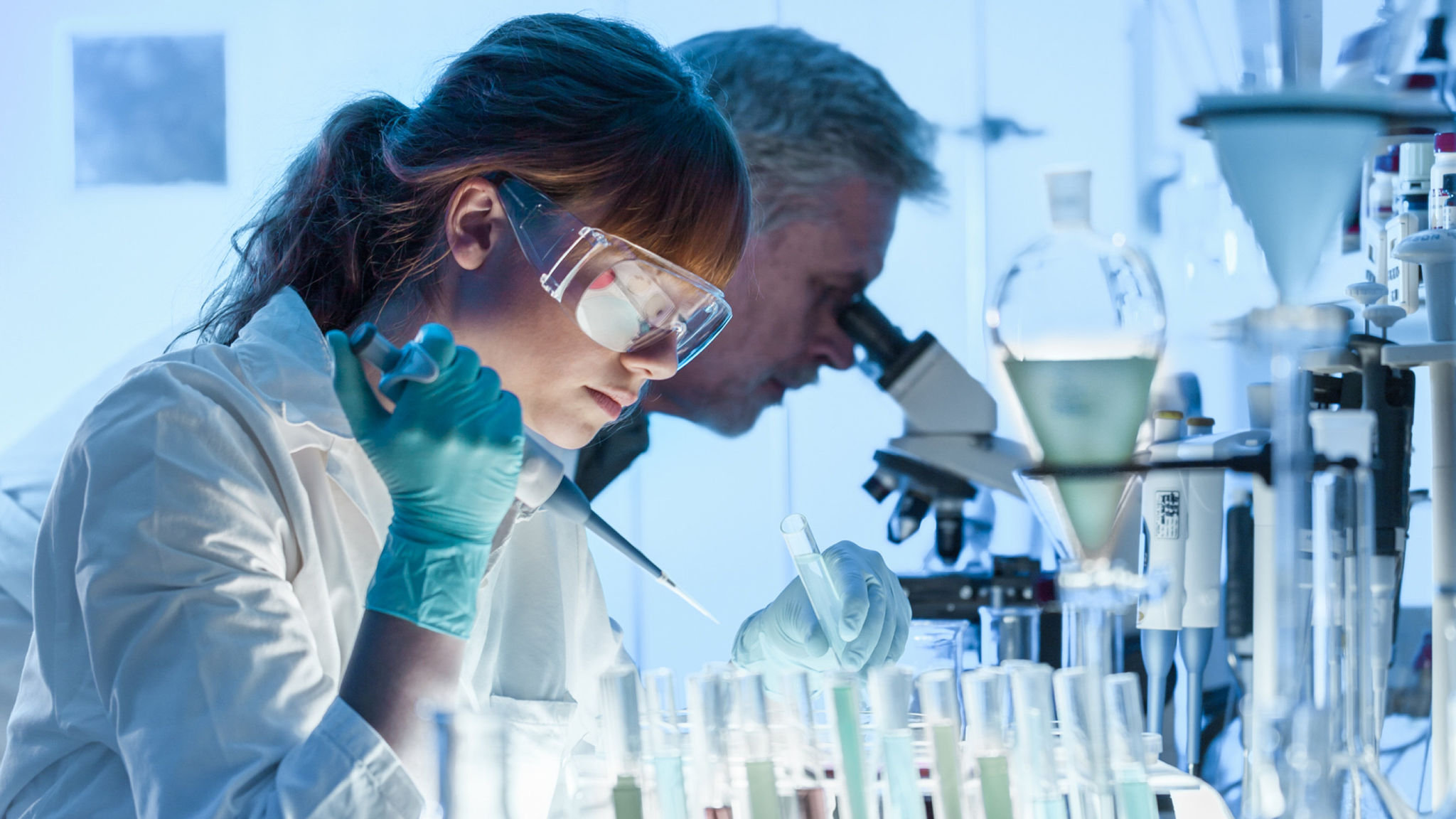
As a research scientist apprentice, you will mainly be involved in study design, implementation, and analysis. This might be for a particular aim, such as producing new items, processes, or commercial applications, or it could be for general scientific understanding.
You will often do experiments and research independently, but you will be part of a larger team and share your findings and relevant information with others. This is often done via international conferences or research paper publications.
Job opportunities exist in commercial and government laboratories, hospitals, and higher education institutions.
Responsibilities
Throughout your apprenticeship, you may help:
- create research proposals and apply for funding
- plan and carry out experiments
- record and analyse results
- present findings in journals, books or at conferences
- develop new products or ways of applying new discoveries
- teach and supervise student research projects.
Salary
- Starting salary for an apprentice is £17,668. Some institutions may pay more than this.
- Once you are working as a research scientist after completing your PhD, you could earn in the region of £25,000 to £40,000 depending on your specialist subject and experience.
- University professors or senior researchers with high levels of responsibility, such as at principal investigator level, can achieve salaries of £50,000 to £75,000.
Working hours
Academic hours are typical, averaging 37 hours per week from 9 a.m. to 5 p.m. You may be required to work after hours or on weekends to complete examinations; however, most organisations provide flexible working arrangements to accommodate this.
Working environment
You could work in a laboratory or at a university.
Your working environment may be outdoors some of the time.
You may need to wear protective clothing.
Qualifications
Qualifications you can achieve as an apprentice research scientist include:
- Level 7 Research Scientist – Entry requirements for this level include 4 or 5 GCSEs at grades 9 to 4 (A* to C) and A levels, or equivalent, for a higher or degree apprenticeship. This qualification will take 30 months to complete.
Skills
On a research scientist apprenticeship, you’ll learn:
- knowledge of biology
- thinking and reasoning skills
- excellent verbal communication skills
- the ability to use your initiative
- the ability to read English
- analytical thinking skills
- to be thorough and pay attention to detail
- knowledge of English language
- to be able to use a computer and the main software packages competently.
Employers
There are many employers across a variety of sectors within life sciences, including:
- clinical research organisations
- large pharmaceutical and cosmetics companies
- national and global health-related charities
- private hospitals and NHS trusts
- research councils and their associated institutes
- scientific and technical consultancies
- universities, including those overseas.
Professional development
It is vital to remain up-to-date on new techniques, abilities, and breakthroughs. Continuing professional development (CPD) is supported by institutions such as the BBSRC via events and industry news. Conferences are a great way to learn about new scientific discoveries and research approaches, and you will be expected to attend them regularly. In addition, you may be asked to showcase your work on occasion.
Formal training programmes are often used to support jobs in the industry, which may include completing placements in different organisational positions, engaging with a mentor, and creating personal development objectives with line supervisors.
All laboratory researchers must undergo health and safety training and good laboratory practice (GLP). This training may include risk assessment seminars and teaching on the control of hazardous substances (COSHH).
It is also possible to join a relevant organisation, such as the Royal Society of Biology, and work towards chartered biologist status.
Career prospects
Academic progression is well-defined, with most researchers aiming for posts as senior research fellows or professors leading research teams. This may be achieved via experience, successful research projects, and high-quality discoveries.
Senior jobs include more responsibility (for example, requesting funding) and additional instructional, management, and administrative obligations.
You may move in the industry to senior scientific research or management jobs, which include additional responsibilities such as project supervision and management. Alternatively, you might go to another area inside the company, such as business development, production, or a regulatory position.
You might also work in media or communication. Science public awareness is a popular topic with various new opportunities, and professions for journalists with scientific degrees are becoming more prevalent.
After you’ve earned some expertise, consider consulting. For example, you might provide scientific knowledge to efforts while participating in the technical and commercial evaluation of new ideas, products, and technology.
